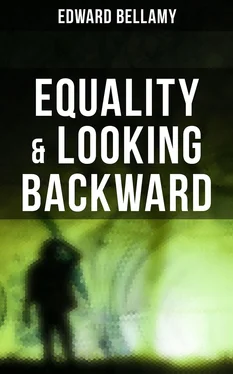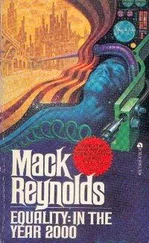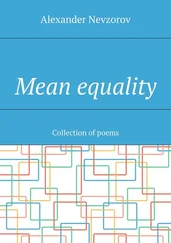“I would give a great deal for just one glimpse of the Boston of your day,” replied Dr. Leete. “No doubt, as you imply, the cities of that period were rather shabby affairs. If you had the taste to make them splendid, which I would not be so rude as to question, the general poverty resulting from your extraordinary industrial system would not have given you the means. Moreover, the excessive individualism which then prevailed was inconsistent with much public spirit. What little wealth you had seems almost wholly to have been lavished in private luxury. Nowadays, on the contrary, there is no destination of the surplus wealth so popular as the adornment of the city, which all enjoy in equal degree.”
The sun had been setting as we returned to the house-top, and as we talked night descended upon the city.
“It is growing dark,” said Dr. Leete. “Let us descend into the house; I want to introduce my wife and daughter to you.”
His words recalled to me the feminine voices which I had heard whispering about me as I was coming back to conscious life; and, most curious to learn what the ladies of the year 2000 were like, I assented with alacrity to the proposition. The apartment in which we found the wife and daughter of my host, as well as the entire interior of the house, was filled with a mellow light, which I knew must be artificial, although I could not discover the source from which it was diffused. Mrs. Leete was an exceptionally fine looking and well preserved woman of about her husband’s age, while the daughter, who was in the first blush of womanhood, was the most beautiful girl I had ever seen. Her face was as bewitching as deep blue eyes, delicately tinted complexion, and perfect features could make it, but even had her countenance lacked special charms, the faultless luxuriance of her figure would have given her place as a beauty among the women of the nineteenth century. Feminine softness and delicacy were in this lovely creature deliciously combined with an appearance of health and abounding physical vitality too often lacking in the maidens with whom alone I could compare her. It was a coincidence trifling in comparison with the general strangeness of the situation, but still striking, that her name should be Edith.
The evening that followed was certainly unique in the history of social intercourse, but to suppose that our conversation was peculiarly strained or difficult would be a great mistake. I believe indeed that it is under what may be called unnatural, in the sense of extraordinary, circumstances that people behave most naturally, for the reason, no doubt, that such circumstances banish artificiality. I know at any rate that my intercourse that evening with these representatives of another age and world was marked by an ingenuous sincerity and frankness such as but rarely crown long acquaintance. No doubt the exquisite tact of my entertainers had much to do with this. Of course there was nothing we could talk of but the strange experience by virtue of which I was there, but they talked of it with an interest so naive and direct in its expression as to relieve the subject to a great degree of the element of the weird and the uncanny which might so easily have been overpowering. One would have supposed that they were quite in the habit of entertaining waifs from another century, so perfect was their tact.
For my own part, never do I remember the operations of my mind to have been more alert and acute than that evening, or my intellectual sensibilities more keen. Of course I do not mean that the consciousness of my amazing situation was for a moment out of mind, but its chief effect thus far was to produce a feverish elation, a sort of mental intoxication. 1
Edith Leete took little part in the conversation, but when several times the magnetism of her beauty drew my glance to her face, I found her eyes fixed on me with an absorbed intensity, almost like fascination. It was evident that I had excited her interest to an extraordinary degree, as was not astonishing, supposing her to be a girl of imagination. Though I supposed curiosity was the chief motive of her interest, it could but affect me as it would not have done had she been less beautiful.
Dr. Leete, as well as the ladies, seemed greatly interested in my account of the circumstances under which I had gone to sleep in the underground chamber. All had suggestions to offer to account for my having been forgotten there, and the theory which we finally agreed on offers at least a plausible explanation, although whether it be in its details the true one, nobody, of course, will ever know. The layer of ashes found above the chamber indicated that the house had been burned down. Let it be supposed that the conflagration had taken place the night I fell asleep. It only remains to assume that Sawyer lost his life in the fire or by some accident connected with it, and the rest follows naturally enough. No one but he and Dr. Pillsbury either knew of the existence of the chamber or that I was in it, and Dr. Pillsbury, who had gone that night to New Orleans, had probably never heard of the fire at all. The conclusion of my friends, and of the public, must have been that I had perished in the flames. An excavation of the ruins, unless thorough, would not have disclosed the recess in the foundation walls connecting with my chamber. To be sure, if the site had been again built upon, at least immediately, such an excavation would have been necessary, but the troublous times and the undesirable character of the locality might well have prevented rebuilding. The size of the trees in the garden now occupying the site indicated, Dr. Leete said, that for more than half a century at least it had been open ground.
1.In accounting for this state of mind it must be remembered that, except for the topic of our conversations, there was in my surroundings next to nothing to suggest what had befallen me. Within a block of my home in the old Boston I could have found social circles vastly more foreign to me. The speech of the Bostonians of the twentieth century differs even less from that of their cultured ancestors of the nineteenth than did that of the latter from the language of Washington and Franklin, while the differences between the style of dress and furniture of the two epochs are not more marked than I have known fashion to make in the time of one generation.
Table of Contents
When, in the course of the evening the ladies retired, leaving Dr. Leete and myself alone, he sounded me as to my disposition for sleep, saying that if I felt like it my bed was ready for me; but if I was inclined to wakefulness nothing would please him better than to bear me company. “I am a late bird, myself,” he said, “and, without suspicion of flattery, I may say that a companion more interesting than yourself could scarcely be imagined. It is decidedly not often that one has a chance to converse with a man of the nineteenth century.”
Now I had been looking forward all the evening with some dread to the time when I should be alone, on retiring for the night. Surrounded by these most friendly strangers, stimulated and supported by their sympathetic interest, I had been able to keep my mental balance. Even then, however, in pauses of the conversation I had had glimpses, vivid as lightning flashes, of the horror of strangeness that was waiting to be faced when I could no longer command diversion. I knew I could not sleep that night, and as for lying awake and thinking, it argues no cowardice, I am sure, to confess that I was afraid of it. When, in reply to my host’s question, I frankly told him this, he replied that it would be strange if I did not feel just so, but that I need have no anxiety about sleeping; whenever I wanted to go to bed, he would give me a dose which would insure me a sound night’s sleep without fail. Next morning, no doubt, I would awake with the feeling of an old citizen.
Читать дальше










